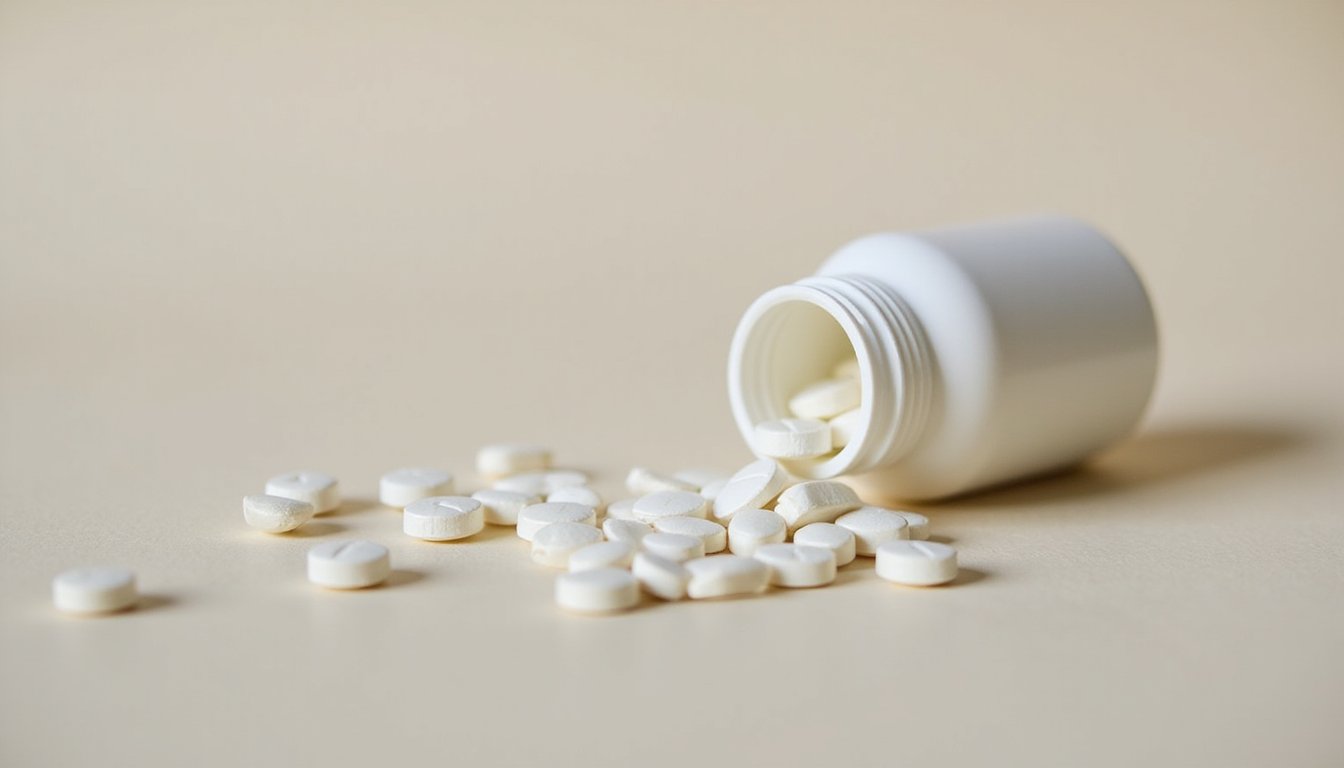To break Adderall addiction, you’ll need to follow five essential steps: Initially, seek medical supervision for a safe detox process to manage withdrawal symptoms. Second, build a strong support network including counselors and support groups. Third, implement vital lifestyle changes focusing on exercise, nutrition, and sleep. Fourth, establish daily routines to minimize triggers and idle time. Fifth, develop long-term relapse prevention skills through cognitive-behavioral techniques. Understanding these steps in detail will strengthen your path to recovery.
Understanding the Impact of Adderall Dependency

While Adderall can be effective when prescribed appropriately, prolonged misuse leads to severe physiological and psychological dependencies. Your brain adapts to the drug’s effects, requiring increasing amounts to achieve the same results, while putting you at risk for serious cardiovascular and neurological complications. Recent studies show that forty million prescriptions are written annually in the United States.
Understanding Adderall effects is vital – the stimulant impacts your central nervous system, potentially causing nerve cell damage, seizures, and irregular heart rhythms. Young adults and students often fall victim to readily available prescriptions through illegal sales and unauthorized distribution channels. This age group accounts for sixty percent of non-medical Adderall use.
Dependency symptoms often include paranoia, anxiety, and severe mood swings. When seeking treatment options, you’ll need to address both physical withdrawal challenges and underlying psychological factors.
Professional medical supervision is essential, as withdrawal can trigger depression and extreme fatigue. Through proper psychological support and medical oversight, you can safely manage the withdrawal process and develop healthier coping mechanisms.
Preparing for Medical Detox and Withdrawal

Beginning the medical detox process requires thorough preparation and professional oversight to guarantee a safe withdrawal from Adderall.
You’ll need a detailed health evaluation that includes physical exams and mental health screenings to establish your personalized detox timeline. Medical professionals will assess your dependence severity and create a tapering strategy to minimize withdrawal symptoms.
During detox, you’ll receive close monitoring of essential signs and may require medications to stabilize blood pressure, heart rate, and mood fluctuations. Access to free health advice is available through confidential information lines during your recovery journey. Patients using Adderall XR typically require extended detox periods due to the medication’s prolonged presence in the body. Cold turkey detox can be dangerous and is not recommended by medical professionals.
Medical supervision during detox ensures vital signs remain stable while medications help control cardiovascular function and emotional states.
Your detox plan will incorporate nutritional support and dietary adjustments to replenish deficiencies from stimulant use. Expect the initial withdrawal symptoms to last 3-5 days, though some effects may persist longer.
You’ll also receive psychological support through therapy sessions and anti-anxiety interventions to manage emotional challenges during this critical phase.
Building Your Recovery Support Network

Establishing a strong support network marks an essential milestone in your Adderall recovery path. Research shows that diverse support channels notably reduce relapse risks while providing critical emotional validation and practical assistance during challenging periods. Early intervention through medical detox supervision can significantly improve treatment outcomes. Having quality personal relationships has been directly linked to better recovery outcomes.
Build your recovery foundation through these evidence-based support channels:
- Connect with professional resources, including addiction counselors and structured rehab programs that offer personalized treatment plans.
- Join peer support groups like 12-step programs where you’ll find understanding from others sharing similar experiences.
- Engage family and friends who can provide non-judgmental encouragement and help maintain healthy routines.
- Utilize specialized helplines such as SAMHSA’s National Helpline (1-800-662-HELP) for immediate access to treatment referrals and crisis support.
Remember to maintain consistent engagement with your support network through regular meeting attendance and ongoing therapy sessions. Consider incorporating holistic methods like meditation and stress management techniques into your recovery routine.
Implementing Essential Lifestyle Changes
Making substantive lifestyle modifications forms the cornerstone of successful Adderall addiction recovery.
Breaking free from Adderall requires deep lifestyle changes that reshape daily habits and build sustainable recovery momentum.
You’ll need to implement structured exercise routines that regulate dopamine levels and reduce cravings. Focus on mindful eating by developing protein-rich meal plans and maintaining proper hydration to stabilize your mood. Medical supervision during the early stages of recovery helps ensure safe withdrawal management.
Establish consistent sleep patterns by creating a device-free bedroom environment and aiming for 7-9 hours of nightly rest. This helps reset your circadian rhythm and supports neurotransmitter balance.
Schedule your daily activities to minimize idle time, and remove environmental triggers that could compromise your recovery. The Grove’s comprehensive therapy options can help you develop effective coping strategies for managing daily stressors without medication.
Consider participating in group fitness classes or outdoor activities to improve mental clarity while building social connections.
Track your progress through journaling, and maintain regular check-ins with healthcare providers to adjust your recovery plan as needed.
Developing Long-Term Relapse Prevention Skills
While overcoming the initial phase of Adderall addiction marks an essential milestone, developing strong relapse prevention skills guarantees lasting recovery. Self-care routines prove essential in maintaining both physical and mental stability during recovery.
Research shows that 68% relapse occurs within the first 30 days after treatment admission, making early prevention strategies crucial.
Effective trigger management combined with sturdy coping strategies creates a foundation for sustained sobriety. You’ll need to build a thorough toolkit of skills and supports. The process often begins with addressing emotional relapse signs like isolation and poor self-care habits.
- Master trigger identification through daily journaling and mindfulness practices to recognize high-risk situations before they escalate.
- Establish a reliable support network including therapists, support groups, and accountability partners for immediate intervention.
- Implement cognitive-behavioral techniques to restructure thoughts and behaviors around substance use.
- Develop healthy alternatives to stimulant use, such as structured exercise routines and skill-based activities that promote natural focus.
Remember to regularly review and adjust your prevention strategies as your recovery process evolves.
Frequently Asked Questions
Can I Still Drive a Car During the Early Stages of Adderall Withdrawal?
You shouldn’t drive during early Adderall withdrawal stages due to significant safety risks.
Withdrawal symptoms like fatigue, impaired concentration, and slowed reaction times can severely compromise your driving safety.
You’ll likely experience physical and cognitive challenges that affect your ability to operate a vehicle safely.
It’s best to arrange alternative transportation until your healthcare provider confirms you’re stable enough to drive, typically after the acute withdrawal phase has passed.
Will My Cognitive Abilities Return to Normal After Long-Term Adderall Use?
Yes, your cognitive recovery is possible after long-term Adderall use.
Research shows that brain function typically improves once you’ve discontinued the medication, though the timeline varies based on your usage duration and individual factors.
You’ll likely experience gradual improvements in memory, focus, and mental clarity as your brain’s neurotransmitter systems rebalance.
However, this process can take several months to a year, and you’ll need patience during the healing period.
How Do Insurance Companies Typically Cover Adderall Addiction Treatment Programs?
Your insurance coverage for Adderall addiction treatment typically includes medically necessary services like detox and inpatient care.
You’ll need to verify specific treatment options with your provider, as coverage varies by plan. Most insurers require preauthorization and prefer in-network facilities.
While inpatient programs often receive broader coverage, outpatient services may have partial coverage.
Don’t forget to check your policy’s deductibles, copays, and coverage limits before starting treatment.
Should I Tell My Employer About My Adderall Addiction Recovery Process?
Consider your workplace culture and HR policies before disclosing your Adderall addiction recovery.
While disclosure benefits can include accessing workplace support and ADA protections, only about one-third of companies offer treatment assistance.
You’ll want to review your employee handbook and determine if your company has an EAP.
If you choose to disclose, document all communications and consider consulting an employment lawyer to understand your rights and protections initially.
Can I Take Other Prescription Stimulants Safely After Recovering From Adderall Addiction?
Taking prescription alternatives after Adderall addiction carries significant risks due to cross-tolerance and shared neurochemical mechanisms.
You’ll need careful medical supervision if you’re considering stimulant safety options. Your history of addiction increases vulnerability to relapse, regardless of the specific stimulant.
Instead, you should investigate non-stimulant medications like Strattera or Intuniv, which offer lower abuse potential.
Regular monitoring and thorough support systems remain essential for maintaining your recovery.






